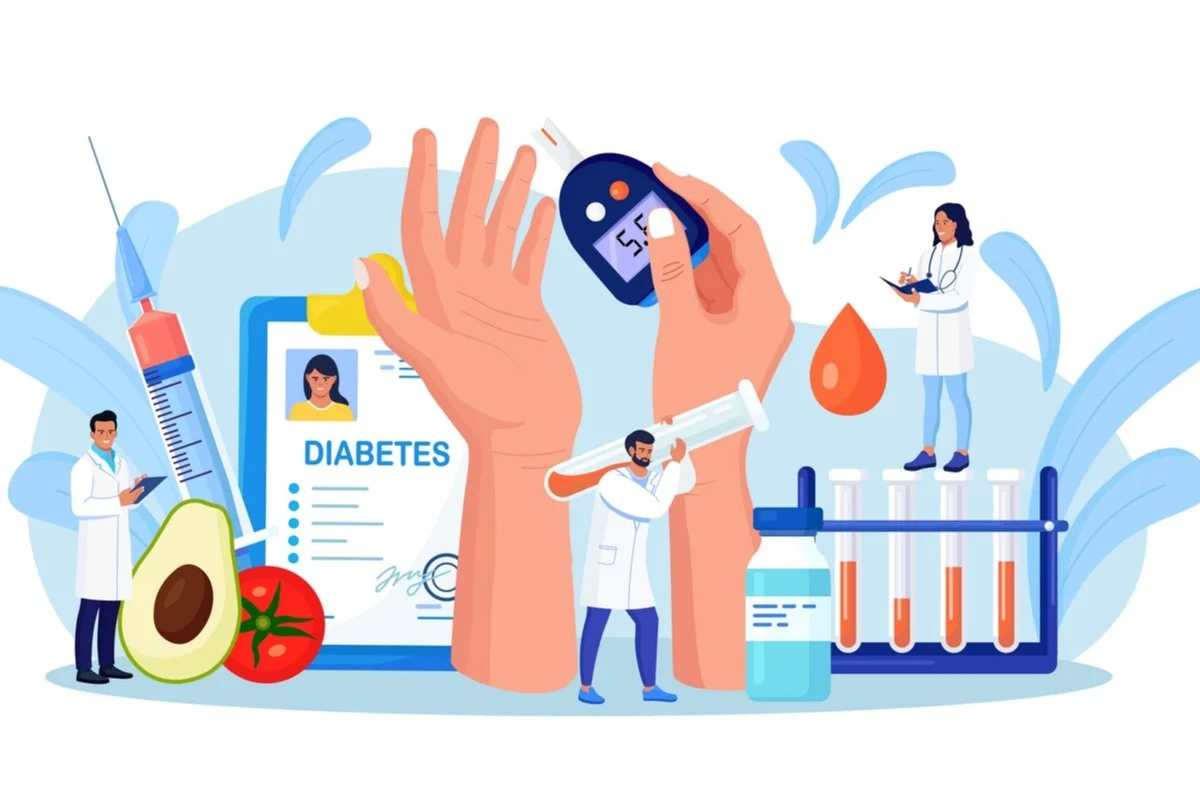Understanding Diabetes: Symptoms, Risk Factors, and Management Strategies

Learn about the symptoms, risk factors, and management strategies for diabetes, including lifestyle changes and medication options.
Diabetes is a chronic condition that affects millions of people worldwide, impacting how the body regulates blood sugar. It's crucial to understand the symptoms, risk factors, and management strategies to effectively control this condition and prevent complications.
What is Diabetes?
Diabetes is a metabolic disorder characterized by high blood sugar levels. This occurs when the body either doesn't produce enough insulin (a hormone that regulates blood sugar) or doesn't effectively use the insulin it produces. Insulin is crucial for allowing glucose to enter cells, where it's used as energy. Without proper insulin function, glucose accumulates in the bloodstream, leading to various health issues.
Types of Diabetes:
- Type 1 Diabetes: Typically diagnosed in childhood or adolescence, type 1 diabetes occurs when the immune system mistakenly attacks and destroys insulin-producing cells in the pancreas. People with type 1 diabetes require lifelong insulin therapy to survive.
- Type 2 Diabetes: This is the most common type of diabetes, often diagnosed in adults but increasingly affecting children and adolescents. In type 2 diabetes, the body either doesn't produce enough insulin or becomes resistant to its effects. It is often associated with obesity, physical inactivity, and genetic predisposition.
- Gestational Diabetes: Develops during pregnancy and usually resolves after childbirth. However, it increases the risk of developing type 2 diabetes later in life for both the mother and child.
Symptoms of Diabetes:
Common symptoms of diabetes include frequent urination, increased thirst, unexplained weight loss, fatigue, blurry vision, slow healing of wounds, and increased hunger. Several risk factors contribute to the development of diabetes, including family history, obesity, physical inactivity, age, race/ethnicity, and gestational diabetes during pregnancy.
- Frequent urination: Excess sugar in the blood leads to more urine production.
- Increased thirst: Due to dehydration caused by frequent urination.
- Unexplained weight loss: Despite eating more (type 1) or being overweight (type 2).
- Fatigue: Feeling tired and irritable due to cells not getting enough glucose.
- Blurry vision: High blood sugar levels can affect the lenses in your eyes.
- Slow healing: Wounds and sores take longer to heal.
- Increased hunger: Especially after eating due to insulin resistance (type 2).
Risk Factors for Diabetes:
- Family history: Having a close relative with diabetes increases your risk.
- Obesity: Excess body fat, especially around the abdomen, increases the risk.
- Physical inactivity: Lack of exercise can contribute to insulin resistance.
- Age: Risk increases with age, especially after 45 years.
- Race/ethnicity: Certain ethnic groups, such as African Americans, Hispanics, and Native Americans, are at higher risk.
- Gestational diabetes: Having gestational diabetes or giving birth to a baby weighing over 9 pounds increases the risk of type 2 diabetes.
Management Strategies:
- Lifestyle Changes:Healthy Diet: Emphasize whole grains, fruits, vegetables, lean proteins, and healthy fats while limiting sugary and high-carbohydrate foods.Regular Exercise: Aim for at least 30 minutes of moderate-intensity exercise most days of the week to improve insulin sensitivity and control blood sugar levels.Weight Management: Losing excess weight and maintaining a healthy weight can reduce insulin resistance and improve overall health.
- Medication:Insulin Therapy: Essential for type 1 diabetes and sometimes necessary for type 2 diabetes if other treatments aren't effective.Oral Medications: Various medications help lower blood sugar levels by different mechanisms, such as increasing insulin production, improving insulin sensitivity, or decreasing glucose production in the liver.
- Monitoring:Blood Sugar Monitoring: Regularly checking blood sugar levels helps individuals understand how diet, exercise, and medication affect glucose levels.HbA1c Testing: Measures average blood sugar levels over the past two to three months and is used to assess long-term diabetes management.
- Regular Medical Care:Annual Check-ups: Regular visits to healthcare providers are essential to monitor blood sugar levels, blood pressure, cholesterol, kidney function, and overall health.Foot Care: Diabetes can lead to nerve damage and poor circulation, increasing the risk of foot complications. Regular foot exams are crucial.
- Education and Support:Diabetes Education: Learning about diabetes, its management, and how to prevent complications is essential for effective self-care.Support Groups: Connecting with others who have diabetes can provide valuable emotional support and practical tips for managing the condition.
Managing diabetes requires a comprehensive approach that includes lifestyle changes, medication when necessary, regular monitoring, and ongoing support from healthcare professionals and loved ones. With proper management, many people with diabetes can live healthy, fulfilling lives while reducing the risk of complications associated with this condition. It's essential to raise awareness about diabetes, promote early detection, and empower individuals with the knowledge and tools they need to take control of their health.
Related Posts

Empowering Cancer Awareness: Early Detection, Treatment, and Coping Strategies

Aging With a Healthy Brain: Lifestyle Changes to Reduce Dementia Risk by Up to 40%

Navigating the Transition: Implementing Electronic Health Records in Hospitals



